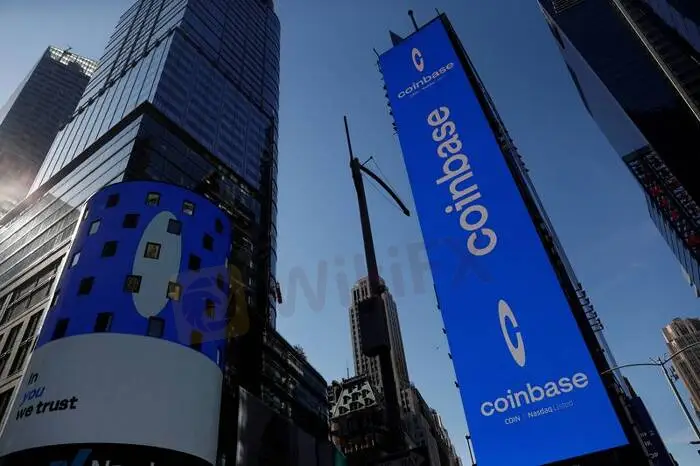简体中文
繁體中文
English
Pусский
日本語
ภาษาไทย
Tiếng Việt
Bahasa Indonesia
Español
हिन्दी
Filippiiniläinen
Français
Deutsch
Português
Türkçe
한국어
العربية
Coinbase removes cryptocurrency links after ‘rug pull’ warnings
Abstract:Coinbase Global has removed ‘how to buy’ instructions for at least three crypto tokens which have been the subject of ‘rug pull’ warnings that investors may lose their money, saying on Thursday it plans to improve safeguards.

Jaclyn Sales, a spokesperson for Coinbase, said the links were removed from the cryptocurrency exchanges website after they were brought to its attention this week by Reuters. There would also be an upgrade in safeguards on its auto-created webpages, she said.
Nasdaq-listed Coinbase features pages offering tips on investing in tokens and the pages in question were informational rather than making them available to trade on its app or wallet.
Sales said the pages, which contained a disclaimer that the information was not investment advice and that the exchange was not liable for “errors and delays”, were created automatically from information carried by data website CoinMarketCap.
CoinMarketCap said it was not aware of the Coinbase pages and its vice-president of growth and operations Shaun Heng said there was not a partnership with Coinbase.
Sales said it was not clear whether Coinbase ran checks on the coins whose information pages it removed. Coinbase would “build a more robust disclaimer for the pages which are being auto-created,” the exchange told Reuters on Thursday via email.
Coinbase would also “build a process to take down any other pages which CoinMarketCap has flagged as potentially being scams,” it said, adding that “assets which relate to known scams were not tradeable on the exchange”.
‘RUG PULLS’
One page removed by Coinbase featured DeFi100 and told users to check CoinMarketCap to find out where it could be bought.
However, the DeFi100 page https://coinmarketcap.com/currencies/defi100/historical-data on CoinMarketCap warns: “We have received multiple reports that this project has exited as a scam. Please exercise caution.”
CoinMarketCap, which does not sell cryptocurrencies on its site, says DeFi100s tokens have not recorded any daily trading volumes since Nov. 14.
DeFi100s website https://defi100.org and Medium blog page https://wrapp3d.medium.com are offline. Its last tweet was in May last year.
CoinMarketCap did not respond to requests for comment on DeFi100 or its warning.
Twitter users alleged in May that DeFi100 had performed a “rug pull”, where investors deposit money in phoney projects before a coins developers make off with the funds.
DeFi100 denied the allegations in one of its last tweets https://twitter.com/DEFI100/status/1396439014178136065?cxt=HHwWgoCt6c_4kuEmAAAA, on May 23. Acknowledging investors had suffered losses, it said it hoped to “bring the project back on its feet”.
It did not respond to Reuters requests for comment.
‘MERCENARY’
Coinbase also took down a page featuring a token called Mercenary which, like DeFi100, was not available on Coinbases app or wallet.
Mercenary launched in January, hitting a high of almost $20. But on Jan. 26 it fell within minutes from just over $8 to a fraction of a cent and its price has not since recovered, CoinMarketCap data shows.
Blockchain security firm PeckShield tweeted https://twitter.com/PeckShieldAlert/status/1486305364018556928?ref_src=twsrc%5Etfw on Jan. 26 that Mercenary had been hit by a rug pull and warned buyers off it.
Reuters could not contact Mercenary, while its website and Twitter page are both offline.
It is unclear when Coinbase launched its page on Mercenary, which archived webpages show CoinMarketCap first featured on Jan. 15. CoinMarketCap did not respond to a question on whether it had taken Mercenary off its system.
Coinbase has also taken down a page on a token named after Squid Game which crashed to almost zero in November in what cyber security experts said was another rug pull. It also was not available on Coinbases app or wallet.
The website and Medium account behind the SQUID token were quickly taken offline after the project unravelled and remain down. Twitter also suspended the project‘s account, saying that it violated the network’s rules.
The developers behind SQUID said on Telegram in November that they were abandoning the token, saying “someone is trying to hack our project”.

Disclaimer:
The views in this article only represent the author's personal views, and do not constitute investment advice on this platform. This platform does not guarantee the accuracy, completeness and timeliness of the information in the article, and will not be liable for any loss caused by the use of or reliance on the information in the article.
Read more

Will the Euro and US Dollar Reach Parity in 2025?
Euro-dollar parity sparks debate again as 2025 approaches, with multiple factors shaping the exchange rate outlook.

US Dollar Surge Dominates Forex Market
The global forex market continues to show volatility, with the U.S. dollar fluctuating last week but overall maintaining a strong upward trend. How long can this momentum last?

Oil Prices Soar for 5 Days: How Long Will It Last?
Last week, the global oil market saw a strong performance, with Brent crude and WTI crude prices rising by 2.4% and around 5% respectively. Oil prices have now posted five consecutive days of gains. But how long can this rally last?

How Big is the Impact of the USD-JPY Rate Gap on the Yen?
The U.S. Federal Reserve's repeated rate cuts and the narrowing of the U.S.-Japan interest rate differential are now in sight. So, why is the U.S.-Japan interest rate differential so important for the yen’s safe-haven appeal, especially when global economic uncertainty rises?
WikiFX Broker
Latest News
SQUARED FINANCIAL: Your Friend or Foe?
Big News! UK 30-Year Bond Yields Soar to 25-Year High!
High-Potential Investments: Top 10 Stocks to Watch in 2025
Why Is Nvidia Making Headlines Everywhere Today?
Discover How Your Trading Personality Shapes Success
US Dollar Insights: Key FX Trends You Need to Know
FINRA Charges UBS $1.1 Million for a Decade of False Trade Confirmations
BI Apprehends Japanese Scam Leader in Manila
Bitcoin in 2025: The Opportunities and Challenges Ahead
Join the Event & Level Up Your Forex Journey
Currency Calculator






